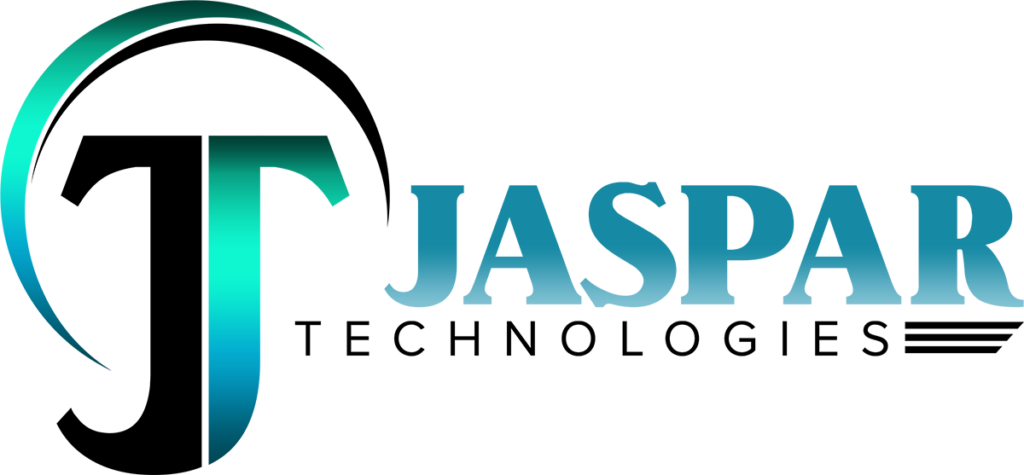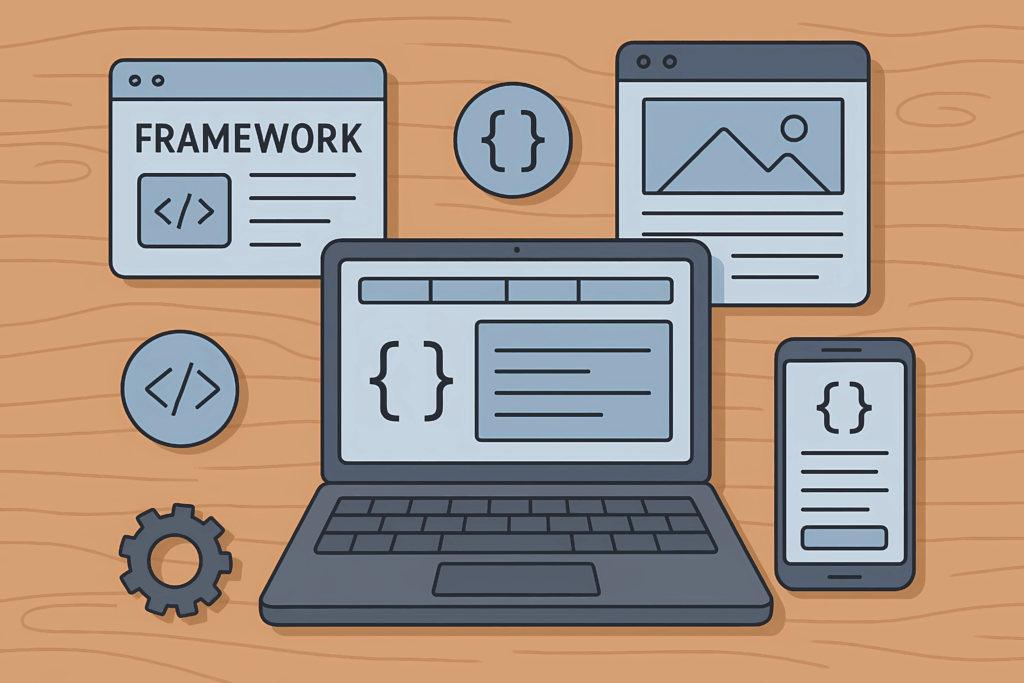What’s a Web Development Framework—and Why Should You Even Care?
Let me guess. You’ve probably heard phrases like “React is amazing,” or “We’re switching to Laravel,” tossed around like casual banter in a coffee-fueled dev stand-up. And if you’re someone trying to understand how websites get built—beyond just dragging things in a no-code builder—you’ve likely wondered: What on earth is a web development framework, and why does it matter so much?
Well, here’s the thing: frameworks are like the secret recipes behind your favorite dishes. You may not see the sauce pan or smell the herbs, but what’s served up to you—fast, consistent, and delicious—relies on it completely.
Wait, So What Is a Web Framework?
Picture this. You walk into a kitchen and someone hands you raw meat, a pile of veggies, and says, “Make biryani.” No recipe, no stove, no knives. Just vibes.
Now imagine the same kitchen, but this time, you’ve got a chef’s toolkit, a stove set to the right temp, pre-chopped onions, and a step-by-step method you can tweak based on your taste. That’s what a framework does for developers. It provides the pre-built tools, structure, and components to create websites or web apps faster, smarter, and—most importantly—without burning the metaphorical rice.
In more technical terms, a web development framework is a collection of libraries, tools, and best-in-class code practices (yeah, we know you hate that phrase) that help you build and maintain web applications efficiently.
Still sounds abstract? Let’s break it down further.
Front-End vs. Back-End Frameworks: The Tag Team Duo
Most frameworks are either for the front end (what users see and interact with) or the back end (the engine running behind the curtain). Some frameworks do both—because why not make things spicy?
Front-End Frameworks: The Visual Architects
Ever scrolled through Airbnb and thought, “Wow, this is clean”? That’s the magic of good front-end frameworks like:
- React – Created by Facebook; it’s component-based and just…snappy.
- Vue.js – Think React’s chill cousin with less baggage.
- Angular – More like a Swiss Army knife; powerful but comes with a learning curve.
These frameworks help developers build slick, responsive, and fast-loading user interfaces (UI) with reusable components—kind of like Lego blocks, but for code.
Back-End Frameworks: The Silent Workhorses
While the front end is charming you with buttons and transitions, the back end is sweating bullets handling logins, data, emails, and that complicated checkout you just triggered.
Popular ones include:
- Node.js + Express – JavaScript on the server? Yup. Fast, scalable, and loved by startups.
- Django – Built with Python; it’s secure, clean, and surprisingly friendly.
- Laravel – PHP’s redemption arc; elegant syntax and powerful tools.
The role here is to handle logic, databases, server configurations, and everything that happens behind the scenes.
Why Not Just Build from Scratch?
Okay, but couldn’t a dev just code everything from zero?
Sure—if you’ve got unlimited time, a caffeine drip, and no deadlines.
But reality doesn’t work like that. Clients want speed. Teams want consistency. And developers want sanity. Frameworks offer a kind of “developer safety net.” They handle routine stuff (like routing, form validation, or authentication) so devs don’t have to reinvent the wheel every single time.
It’s like asking a pilot to build the plane before flying you somewhere. No one wants that.
Okay, So What Makes a Framework Good?
Great question. It’s not just about popularity—though let’s be honest, hype does drive adoption.
Here are a few things that separate the frameworks that stick from those that just look shiny on GitHub:
- Ease of Learning – Can a newcomer pick it up quickly? Vue, for example, is known for this.
- Community Support – Are there enough Stack Overflow posts to save your sanity?
- Scalability – Will it break when your app goes viral overnight?
- Performance – How fast is it under pressure?
- Security Features – Built-in protection beats patching a breach later.
Real Talk: How Do Frameworks Affect You as a User?
Even if you’re not a developer, frameworks touch your life constantly. Ever used a web app that loaded instantly, worked perfectly on mobile, and remembered your preferences? That’s often thanks to a framework doing the heavy lifting.
On the flip side, if you’ve used a clunky site that made you wait five seconds after every click, there’s a chance someone skipped using a decent framework—or used one poorly.
So yes, the framework matters. Just like a house built on a solid foundation stands stronger, a website built on a good framework is faster, safer, and easier to upgrade.
Are Frameworks Just a Fad?
Short answer? No.
Longer answer? Web frameworks have been around for decades, evolving with tech. Remember jQuery? That was a game-changer in the 2000s. Now we have component-based libraries, headless CMSs, and full-stack solutions like Next.js.
Frameworks aren’t going anywhere. They’re evolving—sometimes painfully—but always toward better efficiency, better code sharing, and (hopefully) better developer experience.
Quick Sidebar: Do Frameworks Lock You In?
This one’s a bit of a double-edged sword.
Some frameworks are flexible and “unopinionated” (they don’t force you to do things a certain way), like Express or React. Others, like Angular or Ruby on Rails, are more structured—they give you strong guidance but can feel rigid later.
So it’s about trade-offs. Freedom vs. structure. Flexibility vs. conventions. You choose what fits your project—and your team’s temperament.
Tangent Time: Frameworks vs. Libraries—Wait, There’s a Difference?
Yup. It’s subtle but important.
A library is like going to a hardware store and picking the tools you need. You’re still building the house.
A framework is like hiring a team with the tools and blueprint ready—they’ll guide the construction, but you still direct it.
React, for example, is technically a library. But because of how it’s used and extended, many treat it like a framework.
So… Should You Learn a Framework?
If you’re a budding developer or someone looking to break into tech, here’s the honest advice: Yes. Learn one.
Start with the one that makes sense for your goals:
- React if you’re aiming for front-end or full-stack JavaScript jobs.
- Django or Laravel if you lean toward clean back-end dev with structure.
- Vue if you want something easy yet powerful.
Framework knowledge not only improves your development speed—it makes you a better thinker. You’ll start recognizing patterns, writing cleaner code, and collaborating more effectively with teams.
And hey, even if you’re not building apps, just understanding frameworks can help you talk to developers without sounding like a deer in the headlights.
Wrapping It All Up (But Not Too Neatly)
Frameworks are kinda like relationships. They need understanding, patience, and the right fit. Pick the wrong one, and it’ll frustrate you endlessly. Pick the right one, and you’ll wonder how you ever built without it.
Whether you’re a developer, a designer trying to peek behind the curtain, or just a curious soul who loves learning how the digital world ticks, understanding web development frameworks is a step toward seeing how the internet is really built.
And next time someone says, “We’re migrating to Next.js,” you can casually nod—and maybe, just maybe—ask what problems they’re hoping to solve.



